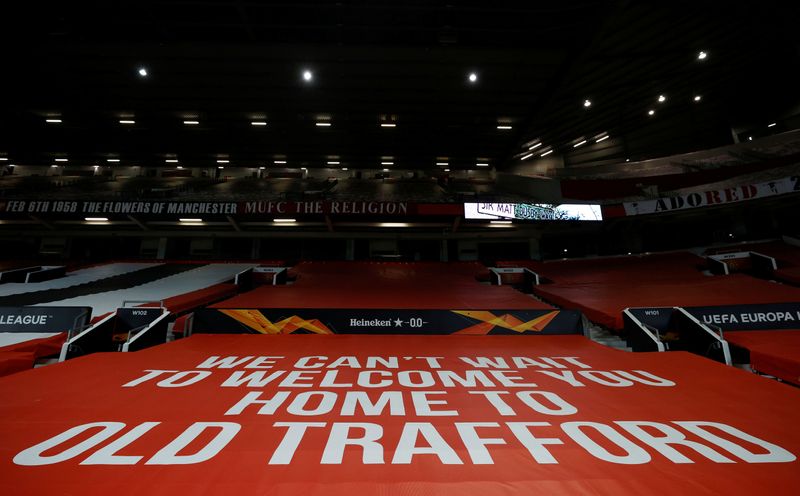Proactive Investors - You wait so long for one, and then just like buses or goals for a striker in a goal drought, two come along: Manchester United being put up for sale means two or even three of the biggest clubs in English and world football may change hands within a year.
Before March, the last such sale was in 2010, when Fenway Sports Group (FSG) bought Liverpool FC for roughly £300mln, had one of the country’s four most successful clubs been on the block.
The first bus off the rank this year was Chelsea, when sanctions on Russia following the Ukraine invasion forced owner Roman Abramovich's exit, with FSG calling for new investors or even a potential full sale of Liverpool earlier this month.
Perhaps inspired by its northeasten rivals, Manchester United is now up for sale, with the Glazer family, which bought the club for £790mln in 2005, not having been particularly welcomed by the Old Trafford faithful.
Critics of the Red Devils' US owners have objected to the fact that the deal was a leveraged buyout from the start, with the Glazers loading up the club with debt and extracting every penny they could.
The fact that this came from a significant increase in corporate sponsorships – from the club's official tractor partner to their official noodle collaborator – while the net transfer spending of US$1bn in the last 10 years has seen no league title for nearly 10 years and began to drag on the sponsorship income (see below).
Super-league failure
One of, if not the biggest reasons to put the club up for sale, could be the failed attempt to form a European Super League (ESL).
Nearly 18 months ago, England’s six biggest clubs, Arsenal, Chelsea, Liverpool, Manchester City, Manchester United and Tottenham, agreed to join other European giants in a closed league.
The ESL was expected to generate billions of pounds worth of revenue for these clubs, further deepening their spending power.
It was an idea the American owners of Liverpool, Manchester United and Arsenal were believed to be the driving forces behind, at least in England.
However, following fan protests, the league was quickly shut down and the clubs ditched the idea.
Losing out on this guaranteed money, analysts argue, has caused the owners of Liverpool, and perhaps now Manchester United, to sell.
Commercial giants
While the Glazers have been heavily criticised, one thing that they have done well is develop a strong commercial model – all hail official tractor partners Yanmar and Japanese noodle firm Nissin and Korea's ready-to-eat curry specialists Ottogi.
According to Conrad Wiacek, a sports analyst at GlobalData, what the Glazers have realised is that “what happens on the pitch can often limit what you can do financially.”
“You have the Chevrolet deal which was a high point in terms of their sponsorship, then the TeamViewer after that which was a bit less.”
“TeamViewer have already said that they’re not going to renew after this contract unless there is an uptick in performance.”
United worth over £5bn, how?
Chelsea went for £4.25bn after a bidding war from various interested parties, while FSG are reportedly looking for around £3bn for the sale of Liverpool.
Figures touted for Manchester United start at £5bn, with £6bn and even £8bn mooted.
On the field, both Liverpool and Chelsea in recent history have been much more successful than United.
Off the field as well, Liverpool have invested in expanding the stadium and upgrading the training facilities, something the Glazers have been criticised for not doing.
So where does United’s seemingly inflated figure come from?
For one, the Old Trafford club's commercial revenues are ahead of both Liverpool and Chelsea, generating more in sponsorships than both despite the lack of on-field success.
“They generate over double what Liverpool do in terms of their sponsorship revenue,” said Wiacek.
“They still generate the most sponsorship revenue in the Premier League, even ahead of the likes of Manchester City.”
And while the stadium clearly needs some work, it is still the second-largest in terms of capacity in England behind Wembley.
Final thoughts
So, the reason why United are valued more than Liverpool and Chelsea is that off the field, despite all the shortfalls, it is still a decade ahead of the rest of the league in the area that money-men think about.
It was the first club to capitalise on the commercialisation of football in England in the 90s following the boom of the Premier League.
With the other clubs playing catch up as a result, it is still way ahead in that respect despite seemingly stagnating under Glazer rule.
